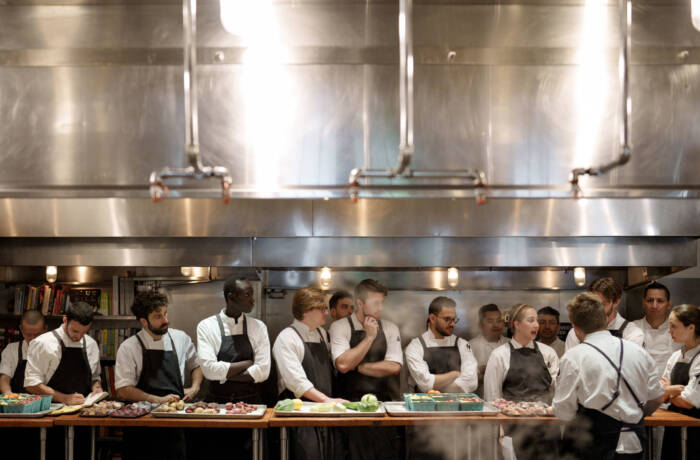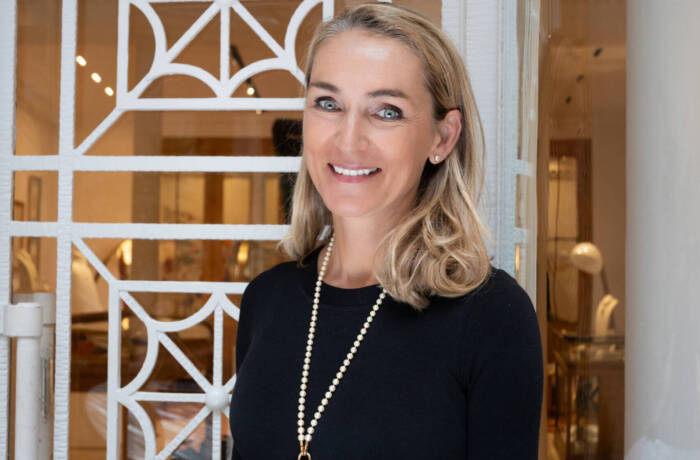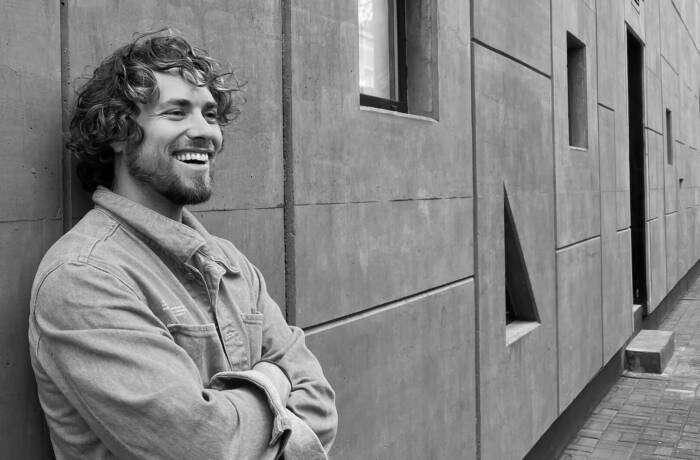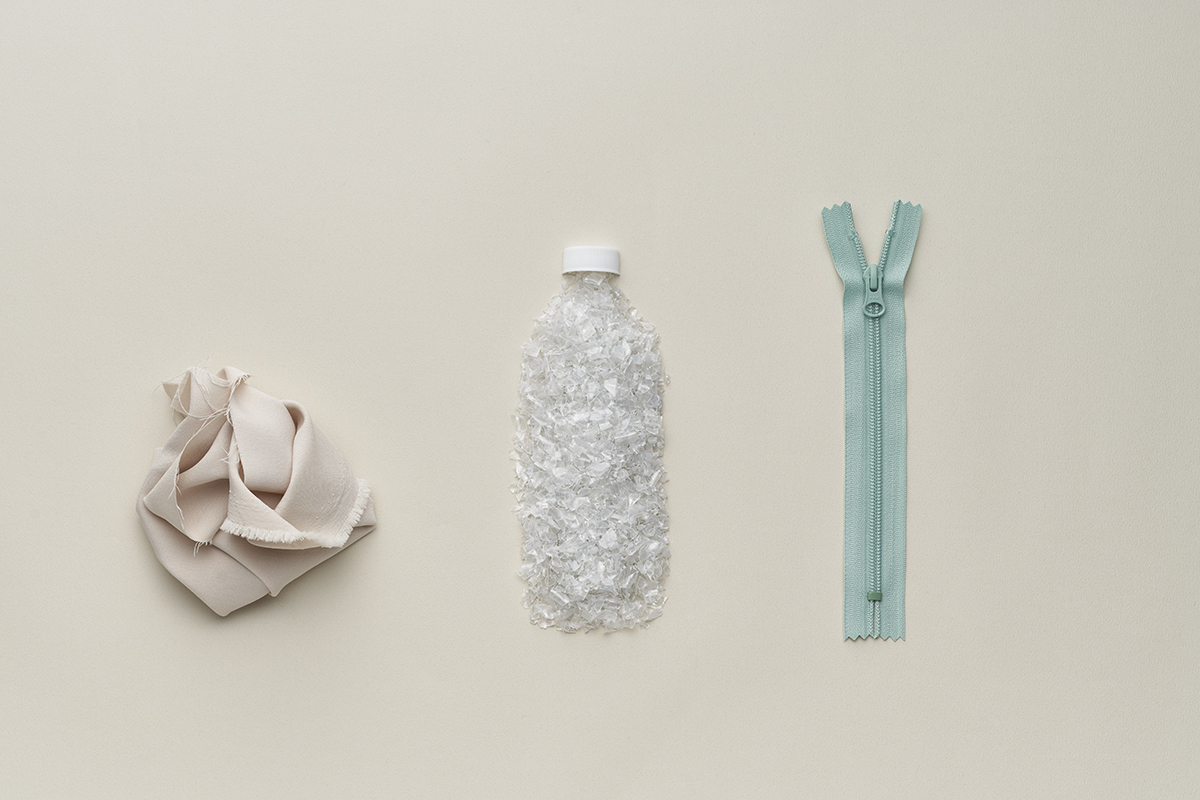
YKK’s NATULON® Mechanically Recycled Zip is made with recycled yarn and post-consumer plastic bottles
The amount of zips produced by YKK each year far outstrips the number of people currently on Earth. So how can a company mass producing and growing at such scale stay true to values of circularity and sustainability? LUX speaks to Jim Reed, CEO of YKK America, about why he believes cost and speed need not be barriers to a sustainable business
LUX: Can you explain the cycle of goodness and how it relates to the YKK philosophy?
Jim Reed: The cycle of goodness – meaning that no one prospers without rendering benefit to others – was developed by our founder, Tadao Yoshida. One of his inspirations was Andrew Carnegie, a late 19th century early 20th century steel tycoon, who had a philosophy about a business’ obligation to society. As a young man, Tadao Yoshida got hold of a translated copy of Andrew Carnegie’s biography. He was inspired by Andrew Carnegie’s words and he decided that was the philosophy that should drive us. He was always entrepreneurial, but it wasn’t about how wealthy he could get, it was about how he could help. He wanted to contribute to society.
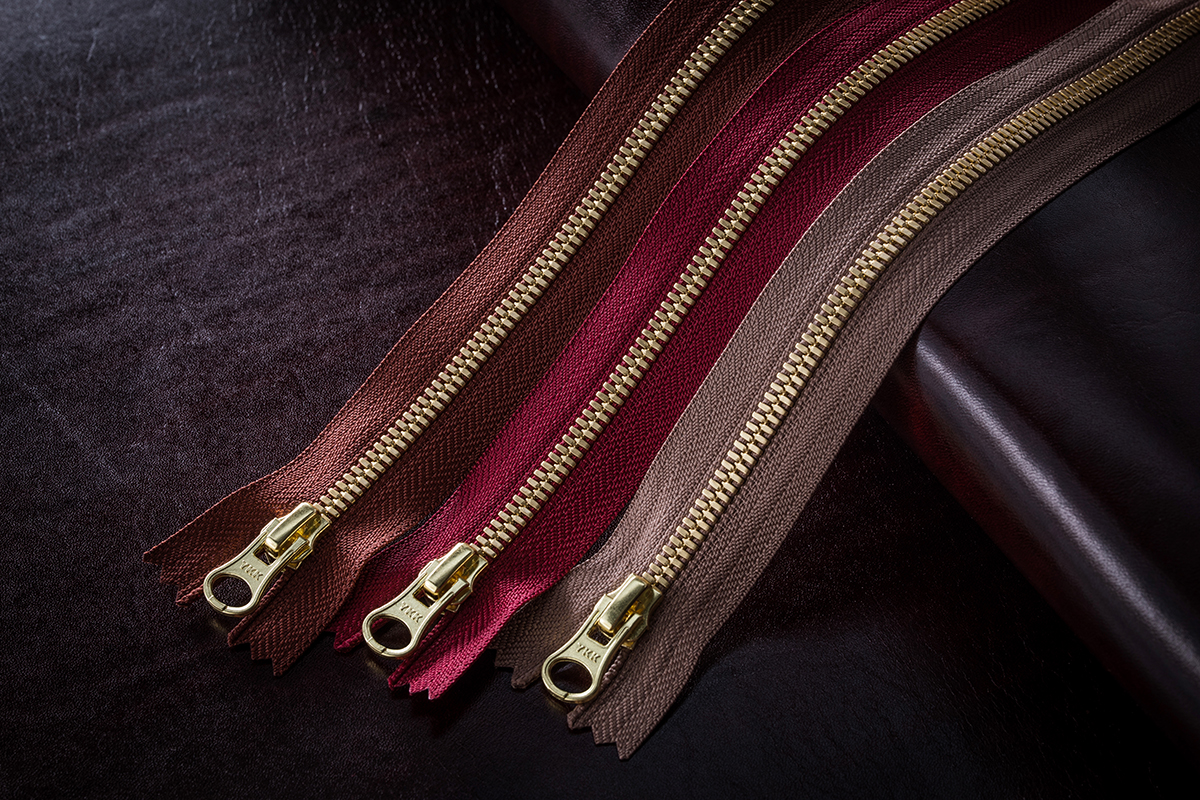
YKK is used by hundreds of major clothing companies including The North Face, Patagonia, Levi’s and Nike
LUX: Your president, Hiroaki Ōtani, said the company’s immediate vision is for ‘better products at a lower cost and greater speed, more sustainably’. How do you plan to chase growth while also racing towards carbon neutrality?
JR: President Ōtani is talking about getting the right materials for the right products to the right customer at the right time. If you think about those concepts, you’re not overproducing. We’re producing over 10 billion zippers in a year, but our objective is that, at the end of the day, every zipper has a perfect spot and nothing gets wasted. On top of that, he talks about better products, lower cost, greater speed, and more sustainability. If we can be more efficient, and some of the obstacles to sustainability – cost – can be reduced, then a sustainable product can match the price of the less sustainable cheaper product and you can match that substitution more easily.
Follow LUX on Instagram: luxthemagazine
President Ōtani reorganised our company in a number of different ways five years ago. He created what we call the Technology Innovation Centre. He took all the smartest people in our company and put them in the Technology Innovation Centre, where they were working on pure research, not product development. Innovation and technology have always been an important part of YKK, and particularly now with climate change issues and sustainability, we all need to be making significant changes.
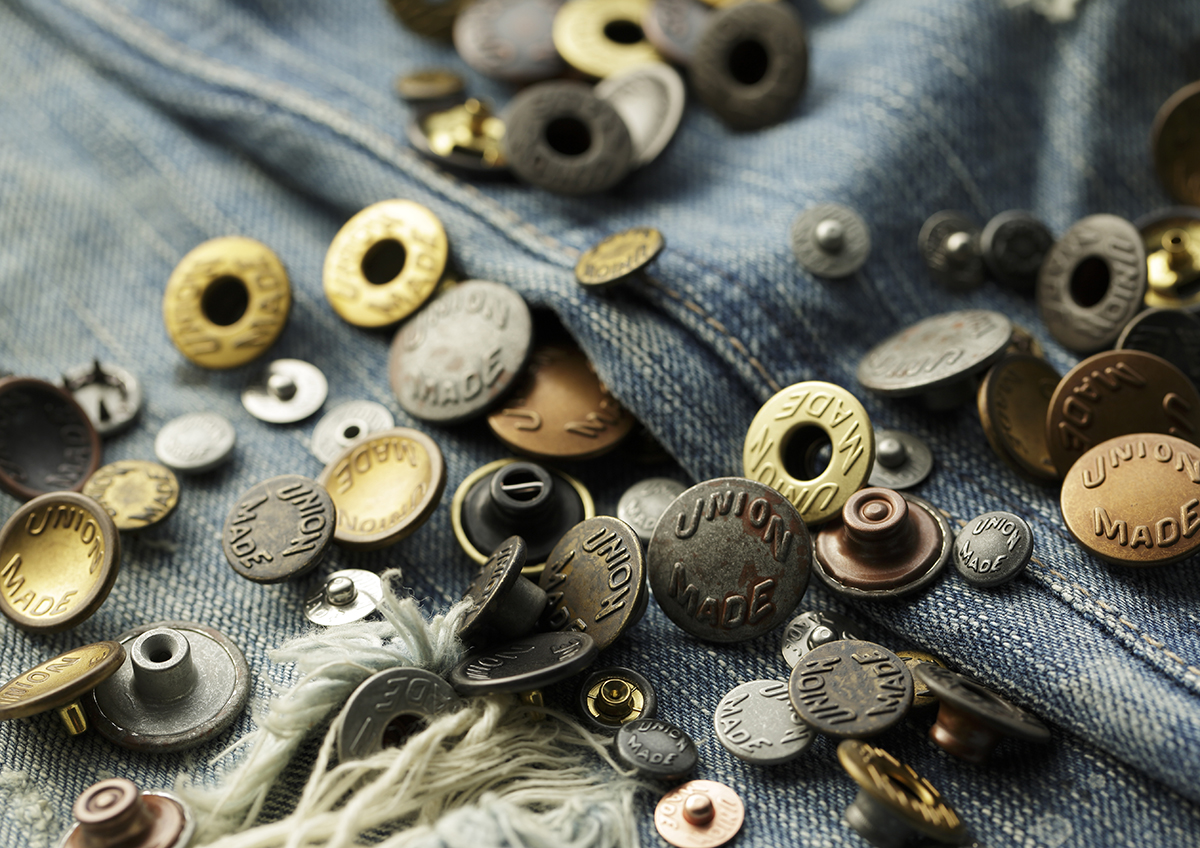
Beyond zips, YKK produces a variety of other products such as snaps, buttons, buckles, and textiles for apparel and industrial use
LUX: How far is the company’s adoption of renewables impacting carbon emissions?
JR: We’re doing very well in that area. We reported at the end of the last fiscal year that we had reduced scope 1 and scope 2 CO2 emissions by almost 47% against our base year. What’s even more significant is that we’re not talking about CO2 emissions per zipper – we’re actually growing our production. Even though our production is increasing, we know our CO2 emissions have to be reduced, and we were able to reduce them significantly. Our 2018 level of CO2 emissions is our base level, by 2030 we’ll cut that in half, and by 2050 we’ll be carbon neutral. Around the world we’re looking at about 32 facilities which are currently using 100% renewable electricity, and very actively working to change the others. That can be a challenge because every facility has a different footprint and has a different source of electricity. But we are continuing to try to find a variety of different mechanisms to employ this.
LUX: What are the pillars for sustainable strategies for textiles packaging and waste management?
JR: For textiles, the main thing is to switch over to recycled thread. We call that NATULON. YKK had been offering to use recycled thread for over 20 years, and we’ve probably had the product for 25 years. Now, the market desires it, and so now we are able to switch over to 100% recycled textile. 26% of our products last year were using it, and that’s going to grow rapidly. We hope that will get up to 41% by next year. We’re working on a complete switchover.
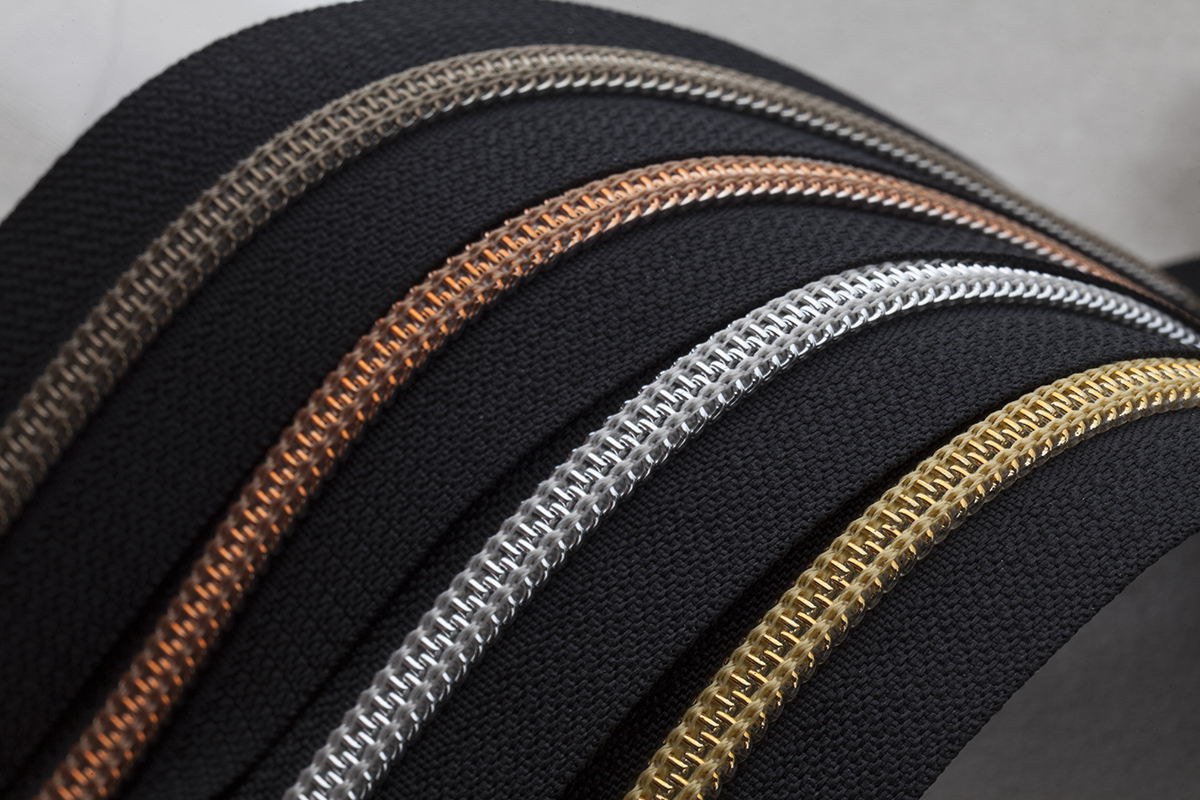
YKK produces more than 3 million kilometers of zips every year
When we talk about waste management, you think about inputs coming into the factory and products coming out, and waste as a by-product of that. You put that waste back into your process. The objective is to get inputs coming into your factory and the only thing that comes out is the product. ECO-DYE technology uses CO2 instead of water to colour the zipper tape. That removes water from the process, which removes the need to take dye out of the water. We also have something called AcroPlating. If you get rid of the need to apply the bad chemicals, then you don’t have to worry about managing the waste on the back end.
Read more: Salomon CEO Franco Fogliato on environmental responsibility in business
LUX: Can you tell us about the partnership between YKK and the Monitor for Circular Fashion? Do you think it could lead to systemic change within the fashion industry?
JR: These partnerships are really important because, just like the UN statement on climate change or the Sustainable Development Goals or the Fashion Charter, all of these statements and actions can really scope the objective to solve the problem. It gives us all targets, and then when we join the Charter, we make promises that we have to stand by. Those are extremely important, because we all need to be speaking the same language and talking about the same objectives. With those statements, the fashion industry can declare to the people of the world that we’re moving in an environmentally-friendly direction and can get the support of their customers, which gives us the inspiration to innovate into that change. Once those goals are clear, then industry can innovate towards it and solve the problem just like we’ve been able to solve any problem when we’re focused on it.
All images courtesy of YKK
Find out more: www.ykkfastening.com/sustainability

